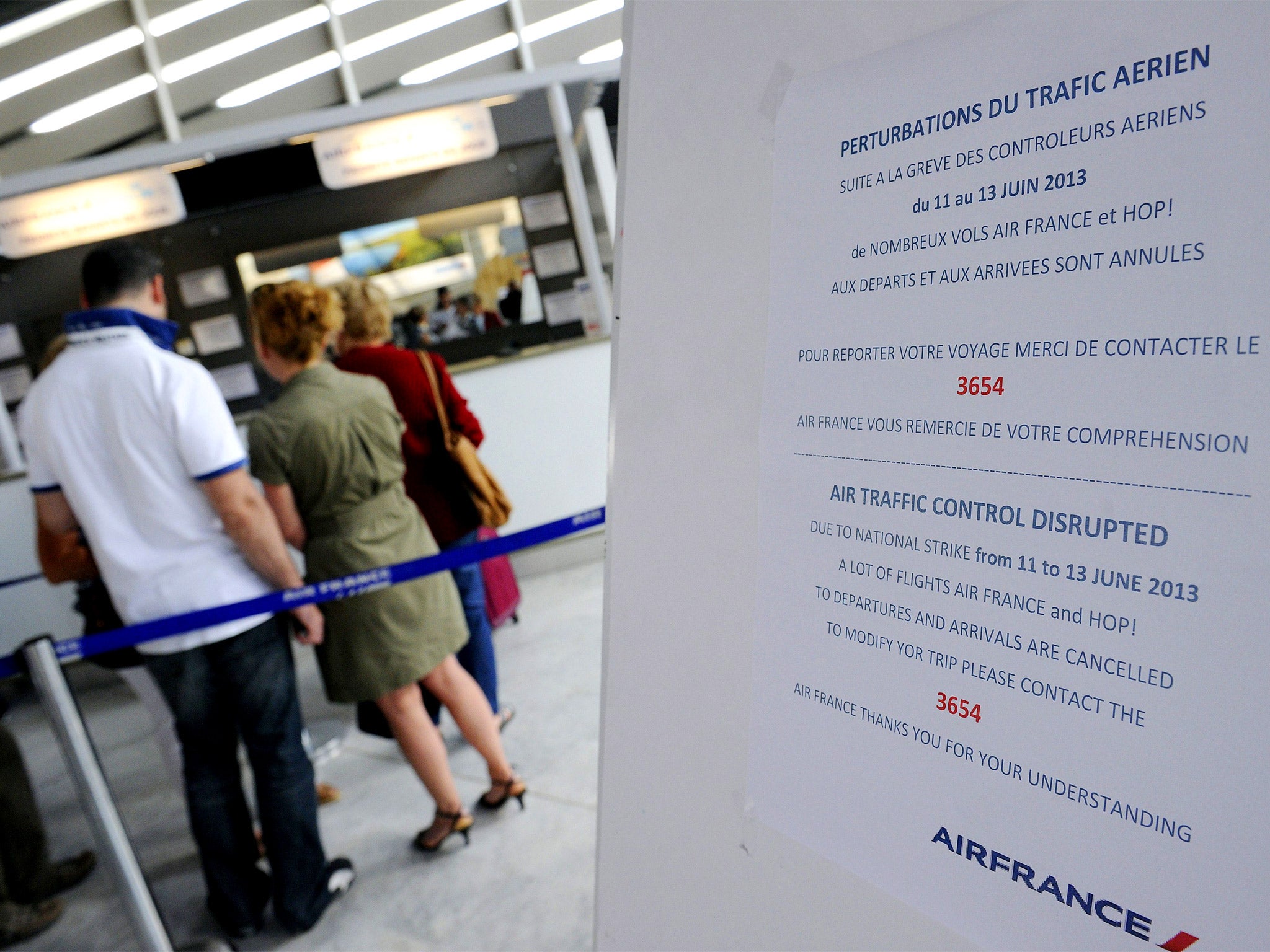Tens of thousands of British travellers stranded after second day of French air-traffic controllers strike
Any flight that travels over the country affected

Tens of thousands of British travellers are waking up this morning many miles away from their intended destination. A second day of strikes by French air-traffic controllers caused even more disruption than the first, with more than 1,000 flights to, from or over France cancelled and a further 4,000 seriously delayed.
The controllers' union, the USAC-CGT, has called off the last day of the strike, which is now to end at 6am on Thursday. British Airways, easyJet and Ryanair all plan to operate normal schedules. But Air France, which has been hit more heavily than other airlines, said only "Our flight operations will gradually return to normal".
The strike was called in protest against much-delayed EU plans to implement the "Single European Skies", aimed at erasing national boundaries. The project has ambitious targets: to triple airspace capacity, reduce the environmental impact of aviation by 10 per cent and to halve air-navigation charges.
The EU estimates that the typical intra-European flight covers 26 more miles than necessary, as pilots follow indirect tracks that individual nations insist upon. The idea is to replace the current patchwork of airspace units with nine much larger "Functional Airspace Blocks" - such as that pioneered by the UK and Ireland.
The scheme was originally expected to be in place by 1995, but has been characterised by monumental foot-dragging.
The French controllers claim that the plans would "violate national sovereignty" and jeopardise safety standards. Advocates of the scheme say the essence of the project is to be supra-national - and that reducing the barriers to free movement in the skies will enhance safety.
While the two sides bickered, passengers found themselves unwittingly caught up in the consequences. Air France said: "The situation is severely disrupted," though it hoped to operate all long-haul services.
Many British passengers planning to transfer to those intercontinental flights were stranded at various UK airports. Grounded passengers are entitled to care from the airline, in the shape of meals and accommodation, but are not due any compensation since the cancellations were beyond the airline's control. Passengers are not entitled to step aboard the first departure once flights resume; they go to the back of the queue, scrambling for the remaining unsold seats on heavily booked services.
Britain's biggest budget airline, easyJet, said "All of our flights that overfly French airspace are experiencing significant slot delays and this is affecting our entire flying programme". Sixty-five per cent of the airline's 1,300 daily flights normally overfly French territory.
Many other carriers adopted longer flight paths to avoid France; Scandinavian holidaymakers bound for Spain found themselves flying over Ireland, while Italy-bound jets from the UK were caught up in congestion over western Germany and Switzerland
The airlines are furious that controllers are, once again, wielding their industrial might against rationalisation. Besides the millions of pounds they are likely to spend meeting their legal obligation to care for passengers, they have lost even more in revenue from cancelled flights.
Ryanair, which cancelled 400 flights today, demanded that the EU remove the air traffic controllers' right to strike. Its spokesman, Robin Keily, said: "It is grossly unfair that thousands of passengers had their plans disrupted as a result of Europe being held to ransom by tiny numbers of French air traffic controllers."
Join our commenting forum
Join thought-provoking conversations, follow other Independent readers and see their replies
Comments